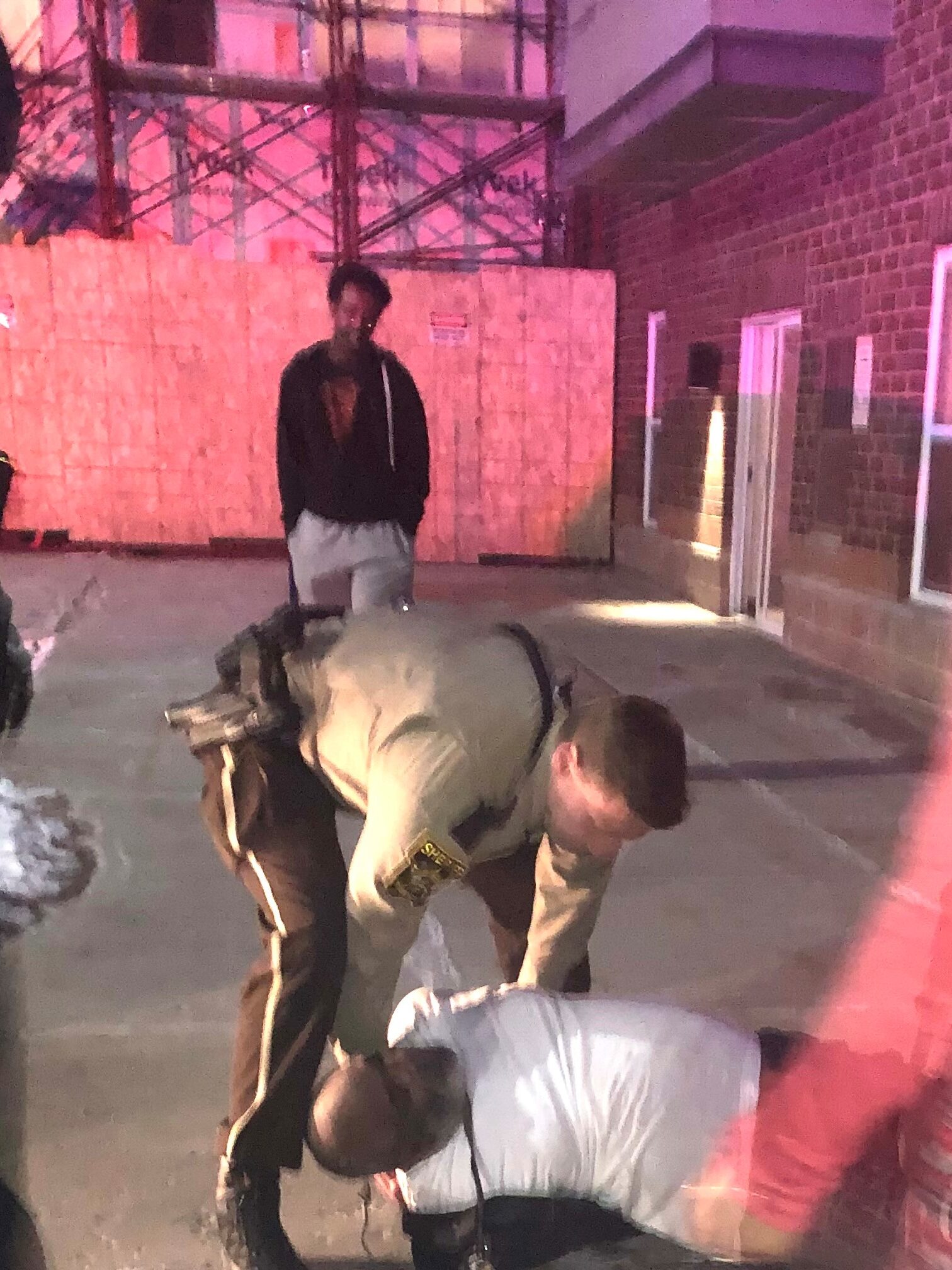Obstructing Justice: After he complained of excessive force, a 67-year-old man was charged with a crime.
[anvplayer video=”5111374″ station=”998122″]
A confrontation with Ramsey County Sheriff’s deputies more than two years ago still brings Michael Torrey-White to tears.
“Emotionally, it still bothers me to this day when I think about it,” Torrey-White said.
A deputy tackled, handcuffed, and detained Torrey-White outside his Falcon Heights apartment in February 2020. Authorities were responding to a call about a disturbance involving a suspect described as a Black male in his late 30s.
Torrey-White is a Black man in his late 60s who relies on a walker.
“They never said, ‘sorry, we got the wrong guy,'” Torrey-White said. “They never apologized to me.”
The obstruction charge is under increasing scrutiny by defense attorneys and state investigators who say it is abused by police and disproportionately used against minorities.
He was not arrested that night.
But ten days after Torrey-White filed an excessive force complaint with the Ramsey County Sheriff’s Office, he was charged with Obstructing the Legal Process and Disorderly Conduct.
“It’s like payback,” Torrey-White said. “‘You complain about us? Oh, we’re going to charge you. How about that?'”
Prosecutors and the Ramsey County Sheriff’s Office have not responded to multiple requests for comment.

The misdemeanor obstruction charge is under increasing scrutiny by defense attorneys and state investigators who say it is abused by police and disproportionately used against minorities.
In Ramsey County, people of color account for only a third of the population.
Yet, they made up nearly 60% of those arrested for obstruction by Sheriff’s deputies over the last five years, according to a 5 INVESTIGATES review of data that identified arrestees by race.
“Pissing off the police”
It’s a similar story in Hennepin County, according to Alicia Granse, an assistant public defender.
“It’s a charge that is pretty amorphous and kind of easy to just throw on… easy enough to say, ‘he tensed’ or ‘he moved away from me,'” Granse said.
In 2020, Granse asked Minneapolis Police for five years of data on every person officers arrested for obstruction – two-thirds of arrestees were Black.
“We all know that people of color are not the majority,” Granse said. “They’re not two-thirds of the Minneapolis population, so that’s telling me that something is going on.”
The Minnesota Department of Human Rights made similar findings in its recent investigation of MPD.
That report cited a “high-level” leader with Minneapolis Police who said officers often use the obstructing charge “for things that could fall under the category, arguably, of pissing off the police.”
Granse does not represent Michael Torrey-White, but says the details of his obstruction case are familiar.
“My thoughts are likely that the man didn’t obstruct the legal process, but him filing the (excessive force) complaint was something that pissed off the police officer,” Granse said. “There are plenty of body-worn camera videos, squad videos where I’ve seen exactly that happening.”
“It’s like payback. ‘You complain about us? Oh, we’re going to charge you. How about that?’”
-Michael Torrey-White
Video denied
Granse has not seen the body camera video involving Michael Torrey-White, and neither has he.
The Ramsey County Sheriff’s Office says it won’t provide footage of the incident until after a court hearing scheduled for next month.
In his report, Deputy Kyle Williams said that Torrey-White refused to respond to his commands.
“He yanked his arm away from me and began yelling not to touch him and that he doesn’t have to talk to me,” Williams wrote.
Torrey-White remembers it differently.
“As I looked at the police report, he sounded like he was trying to have a conversation with me. That did not happen,” Torrey-White said.
Earlier that night, Torrey-White recorded a dispute between the actual suspect and a driver in a gray sedan in the parking lot of his apartment complex.
When he went to check his daughter’s car for possible damage, Torrey-White says he did not immediately know it was a deputy who grabbed his arm from behind.
“I pulled back, and next thing I know, I was up against (a) wall,” said Torrey-White, who added that he had removed his hearing aids before going outside. “I didn’t hear a word.”
The Sheriff’s Office later cleared Deputy Williams of any wrongdoing.
Two years later, Torrey-White is still facing misdemeanor charges.
He says he recently turned down an offer from prosecutors to plead guilty to disorderly conduct instead of obstructing.
“I don’t just want it to go away for their sake. I want it to go away for my sake,” Torrey-White said. “I make a complaint, and you bring charges against me? That’s not fair.”